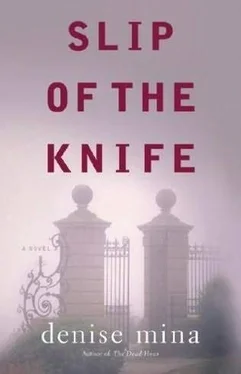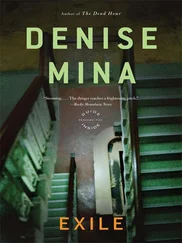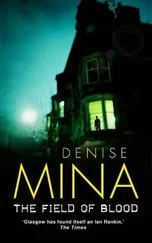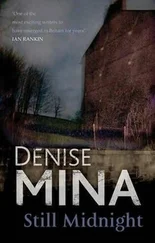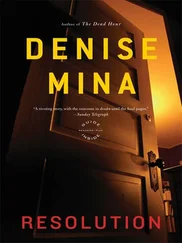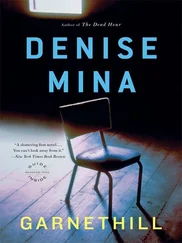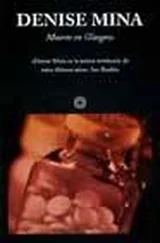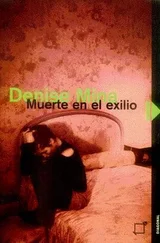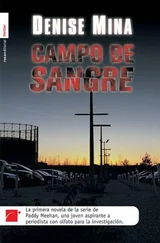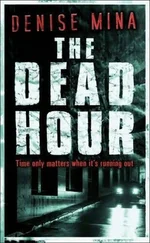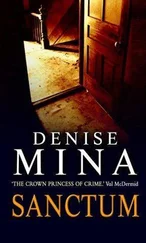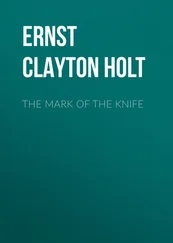“For fucksake, I’m not asking whether Terry was more important than you, I’m asking if he ever fought with McBree.”
Khaki sipped at his whiskey again, an insult to a host in Scotland. He rolled the microscopic portion around the back of his throat before swallowing and his mouth stayed puckered when he spoke. “Young lady, you’ll find politeness and a pleasant manner will get you further-”
She was spluttering angry. “Oh, shut up, you utter cock.”
McGrade grinned at her from behind the bar. He reached over, handing her a brimming whiskey shot, and she downed it in one, slammed the glass on the bar, and gave Khaki Man a parting piece of advice.
“You keep talking like an arsehole and you’ll leave this bar with a sore face.”
She heard later that he flew back to London with a splint on his nose and an arm in plaster.
THIRTY. SLIP OF THE KNIFE
The Pitt Street reception area was busy. Police officers, uniformed and plain clothed, bustled by, all with the same military-precision haircut and shoulders-back bearing. They greeted each other, waited for the lift, disappeared through doors behind reception or took the stairs, never pausing to consider Paddy and Dub, both in funeral clothes, both scruffy and frightened, waiting anxiously on the black leatherette chairs, sweating with the desire to see their boy.
The receptionist was a young man this time, officious and cold, anticipating their annoyance by deadening his eye every time they asked when the questioning would be over, when they would be able to see Pete. Burns was still being questioned. Pete and Sandra had been taken for a tour of one of the stations nearby but Paddy and Dub needed Burns’s say-so before the police could let them see him.
Paddy sat back, twitchy and sickened, thinking that it was a good thing really: she might have been an agent for McBree; they were keeping her boy safe.
Resting her head on the back of the chair, staring up at the stained polystyrene ceiling tiles, she tried to clear her mind. It had been a declaration of war. She had named McBree at the memorial service and some of the journalists who had been there would pick up on it. She’d given them his name, they’d make calls, he’d hear about it. He had the prints and the negatives but Knox would have told him that she had been brandishing photocopies. He had to come for her now. If he didn’t get the last few copies the IRA would kill him for his betrayal.
What she couldn’t understand was why McBree had turned. He was a lifelong Republican; it was his devotion and his career. He was a hero. It must have been his whole identity. The clippings said a bomb had gone off near his family home while he was in New York, she remembered. He’d left his wife and family to deal with the consequences of his commitment to a cause, while at the same time he took money and protection from the enemy. She didn’t know what the security services had over him but it must have been compelling. Blackmail was usually about sex or money.
McBree and Paddy came from the same background. She knew that with rigid moral laws all it took was a stumble on the path, a slip of the knife, unrepented, to put a person on the outside forever, looking in on their families and friends. Paddy herself had stumbled and slipped, scrabbling back but never quite making it. She’d spent most of her childhood on the outside looking in on that warm place. Eventually, when she was older, she had let herself career down the mountainside. It was a lonely journey, but when she came to the bottom she had found her own people in the newsroom, among friends like Dub.
She looked up at him. Dub was leaning on his knees, his back tense, head dropped forward and a big bony hand on his neck. She nudged him with her knee and he sat up and looked at her.
“This is taking fucking ages,” he said.
“He’s safe.”
Not comforted, he shrugged a little and looked around at three policemen waiting at the lift doors. They were all out of uniform but tall and clipped. One wore a green wax coat, the other two suit jackets over slacks. Dub leaned back to mutter to her, “Ye wonder how they ever manage to go undercover, don’t ye? They look so polis-y you could cash them in.”
A bad suit stopped at the corner of her eye, pale blue, slightly crumpled skirt. Paddy turned to find the policewoman who’d interviewed her for Knox standing just inside the doors, looking at her, wary. Paddy nodded. “Garrett.”
Garrett nodded back, hesitated, and came over. “Why are you here?”
Her abruptness made Dub snort indignantly but Paddy quite liked it about her. “Waiting,” she said, copying Garrett’s style. “My son was attacked by McBree.” Garrett’s eyes widened. “He was staying at his daddy’s and someone broke in and was interrupted trying to get into his bedroom with a knife.”
Garrett’s eyes jerked up to a higher floor and back. “ID parade?”
“Had a balaclava on. They haven’t picked him up. Even if they had a photograph of him leaning over Pete with a knife between his teeth they wouldn’t pick him up, would they?”
Garrett bit her bottom lip, her face as emotionless as Paddy remembered. “ Balaclava? So it might not be him?”
Paddy smiled miserably, shook her head and turned away.
Garrett persevered. “There is a chance it might not be him.”
Paddy looked back at her. “My son is five years old. He hasn’t had time to make many enemies.” She looked away again. “You’re not going to help me, so fuck off.”
But Garrett lingered. Eventually she spoke, dropping her voice to a breathy growl: “Fax it.”
Paddy looked up with renewed interest. She touched her fingertips to her handbag, showing she understood. Garrett nodded and walked past her, taking the stairs at a jog, her head down, ashamed.
“What was that last bit about?” asked Dub.
Paddy scratched her cheek as her eyes skirted the floor, thinking. “Nothing,” she said. “Nothing.”
A fax. It was less of a plan than a slap on the wrist afterwards. McBree’d come for her and the best move she could come up with was that she should be alone so no one else got hurt.
The receptionist called out for Mr. McKenzie, telephone. Dub took the lobby floor in two enormous loping steps and grabbed the receiver from him. He smiled and turned back to her.
“Hello, wee man.”
They were led up one flight of stairs by a skinny young policeman with a lisp. He took them along a noisy corridor, through a set of doors marked INTERVIEW ROOMS, and into a side room with more black chairs, an instant coffee machine and a dead plant.
He left them there, flicking his hand vaguely to the machine, telling them to help themselves if they had fifty pence.
A door opened out in the corridor. Paddy and Dub stood up, expecting Pete, but Burns peered in at them, looking like shit warmed up. He was flanked by a tall man in rolled-up shirtsleeves.
“That’s her,” Burns said. “She’s his mum.”
Pete had been having a lovely time. He told them who he had met and where the cells were and how they smelled of pee with bleach in it, like the time Cabrini took her nappy off and weed in the cupboard and Mrs. Ogilvy scrubbed it but made it worse. Like that. And he’d had a cake with raisins in it.
Paddy didn’t want to alarm him with a terrified burst of tearful affection. She gave him a hug but didn’t cling or cry, and let go so that Dub could say hello, but she couldn’t get her hand to leave him. She cupped his head, held his shoulder, tried to take his hand, which he didn’t like, even when they were crossing roads. He wriggled his fingers free but she couldn’t bear not to touch him and contented herself with resting her hand on the back of his shoulder.
Читать дальше
